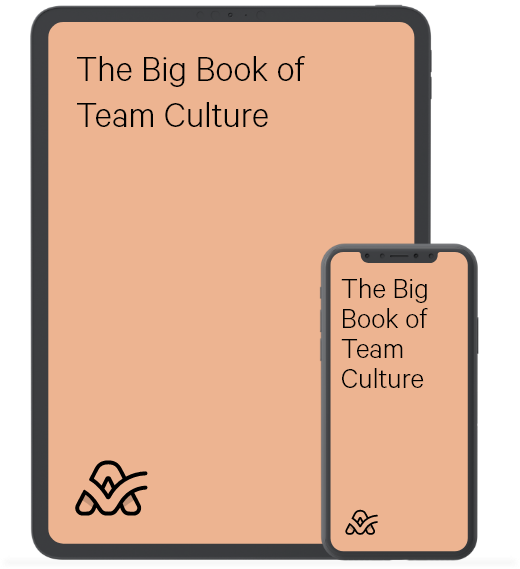Running a successful, well-functioning business has always relied on teamwork. When employees combine their creativity, expertise, skill sets, and talents, many problems get solved. They create new opportunities and form relationships, which boost overall productivity. Even though the majority of work these days is team-based, many companies find it challenging to unleash the power of workplace collaboration.
After all, it's too easy to stay isolated and focus on your tasks instead of seeking ways to increase cooperation. How can you develop a sustainable culture that inspires collaboration and makes teamwork frictionless and appealing? This is the question we will be discussing in this article. Let's get started!
What is team collaboration in the workplace?
We need to admit that the information age has changed the way we think and behave at work. Teams within one company are no longer bound to a single time zone or location. Responses and instructions have moved from being vertical in an organization's hierarchy, allowing teams to share responsibilities, make their own decisions, and celebrate successes.
Many studies, surveys, and reports have proven that team collaboration enhances productivity, regardless of the company size or industry. But, how to collaborate effectively, and what does collaboration mean? In a nutshell, collaboration is working with someone to produce something. Modern technologies have made us broaden this term to web and audio conferencing, e-mail, and instant messaging.

Therefore, collaboration isn't just working with someone; it also includes applying modern technologies to unite teams in different time zones and locations. Moreover, the purpose of collaboration is to produce something, and that "something" generates results in the business world.
What are the benefits of team collaboration?
It's all about brainstorming ideas, sharing links, and providing feedback. Here is a list of benefits you might find useful!
1. Fresh inspiration
Sometimes you will hit the wall, and you won't be sure what to do, no matter how many years of experience you have. Additionally, employees might be too shy or embarrassed to ask for help unless they're working in a collaborative team. That's why sharing ideas, talking about solutions, and openly communicating bring fresh inspiration.
2. Cost reduction
Ineffective communication, including the lack of meaningful conversation or excessive communication, leads to a waste of time. Stronger coordination and project monitoring minimize the amount of time, resources, people, and money needed to complete work.
3. Better customer support
Collaborative work and its benefits extend to customers as well. For instance, in companies where team collaboration is healthy, standard practices address customer cases. Problems with customer complaints, customer care, or website – friendliness are quickly directed to individuals or teams who can fix the issue and improve the customer's experience.
4. Transparency
Measuring productivity and tracking progress is more readily accomplished in a collaborative workplace, while frequent team meetings aren't necessary once everyone is on board. Problems are identified sooner because teams collaborate and sync up on multiple levels, which builds better fluidity.
5. Adaptability
If the team understands the result and its function, it will be prepared for any situation. Changes will happen within your field, and you have to be able to predict them. Those teams that fail to adapt to changes will have a hard time being successful.
6. Open communication
Team collaboration leads to communication, and integrating collaborative tools into your workflow is one of the first steps to communicate effectively. Teams that know how to collaborate are comfortable sharing ideas and adding new tools to the table.
7. Engagement
An employee who is comfortable sharing ideas and aligned with team goals is prepared to tackle the upcoming challenges. When your team members are satisfied with their work, they will help the rest of the team. That's why engagement is crucial since it improves happiness, retention, profitability, and productivity.
8. Skill-sharing
Skill-sharing is one of the crucial benefits of collaboration in the workplace. So, your team is communicating, adapting to changes, and solving problems. However, a team can't do this without the exchange of knowledge. If your team can bring its expertise to the table, they can teach and coach other team members, introduce new skills, and elevate the team as a whole.

The Big Book of Team Culture
Why does collaboration fail?
Poor relationships: you don't have to be best friends with your coworkers to collaborate. However, you do need to share mutual respect and be able to communicate. If this is the first time a team has worked together, it might take some time for different personalities to get together.
Not enough clarity: the lack of transparency is a big one and can involve different variables. To succeed in their goals, a team working together needs to share the same vision and goals. If a group of people wants different results, the collaboration will fail.
Tech overload: even though tools are crucial for any job, too many of them can be disruptive and overwhelming. For instance, if you are using Slack for interaction, Zoom for video, Buffer for social media, everything can become chaotic without achieving effective communication.
Lack of visibility: it's necessary to keep track of your team's progress, what everyone is doing and whether they are on the right path. However, the further you implement collaboration techniques, the more people get involved, and the harder it becomes to maintain that visibility.
Effective team collaboration strategies
Running a collaborative team environment is no simple task, and it takes a lot of effort to integrate cooperative values. Here are a couple of strategies for effective team collaboration that can give you a head start:
1. Repeat your company's mission over and over again
Everyone needs a reason to go to work every day. If you define your company's mission, it is one of the first steps towards bringing people together. Your mission needs to be simple but meaningful. It's your job to provide your employees with a reason, beyond a paycheck, to show up each day and be passionate about their work.
2. Express your expectation for collaboration
If your team doesn't know that you want them to work together, you can't expect them to do so. In fact, collaboration should be a part of your onboarding process so that new recruits know you favor teamwork. Their job description should include details about their individual roles and the role they should assume in a team.

Types of Teams Cheat Sheet
3. Define your team's goals
Letting your team know what their goals are is not a monthly or weekly conversation. Ideally, it should be discussed daily. A team aware of the individual and collective goals is able to minimize silos and maintain productivity. Morning meetings can help foster the idea that team members are working together towards a specific goal every day.
4. Point out individuals' strength
According to some estimates, nearly 66% of employees would leave their jobs if they felt undervalued. This number goes even higher among millennials. People will look for other job opportunities if their unique set of skills isn't used, valued, or recognized. Keep in mind that not everyone is a confident public speaker or a leader. But, for your team to thrive, each member needs to bring their own set of skills to the table.
5. Promote open and honest communication
Great team collaboration relies on truthful and open communication. The more your coworkers feel they can contribute, the more ideas they will share, leading to better productivity.

![Increase Collaboration Between Teams [5 Strategies]](https://activecollab.com/upload/blog/392/cover.png)


![Types of Teams [Advantages and Disadvantages]](https://activecollab.com/upload/blog/150/cover.webp)